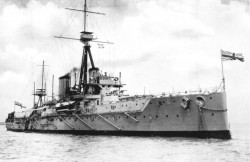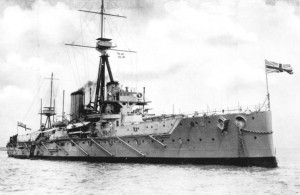Standing in uniform at a crosswalk, fruitlessly mashing the “Press to Cross” button, I felt unsettled. I have less a “belief” in crosswalks than an occasional passing superstition. I’m the type who thinks right-of-way means it’s my right for you to get out of the way, whether I’m on foot or behind the wheel. Why should a uniform cause me to use the push-button placebo? I realized that my simple unwillingness to jaywalk in uniform represented one of the greatest pillars of our national security: our military’s ingrained subservience to and respect for civilian control.
The defense of the realm is more than facing down external threats; the cornerstone of a healthy military is subservience to the population it defends. Western nations have long taken this relationship for granted, with law-abiding militaries obedient to civilian leadership and observant of civil codes. However from the Balkans to Burma, we have witnessed unspeakable devastation when the military wing serves itself. Be it institutional military control of industries in Indonesia or the individual sobels of Sierra Leone, the corruption of the military is arguably more rule than exception. When the madcap dictator rolls out elaborate medals, titles, and military accoutrements, he’s attempting to enshrine his legitimacy in supposed military prowess, ensuring the military becomes a force to be served rather than serve.
In the United States, our tradition goes beyond mere obedience to civilians; we cringe at even inconveniencing them. With the Third Amendment, “no soldier shall, in time of peace be quartered in any house, without the consent of the owner, nor in time of war, but in a manner to be prescribed by law,” our military was founded on principles not just for defending the nation but also minimizing the impact on the lives of citizens. In a less dramatic example, one need merely try convincing a Normandy veteran to go to the head of the grocery line. They’ll resist your polite offer as hard as they resisted the Germans. Our military institutions have instilled at the core of our pride a selflessness that has been the guarantor of our military’s loyalty and good conduct, and this nation’s stability.
However, the unwillingness to walk out into the crosswalk represents in a small way our veterans humble unwillingness to step out into the spotlight for themselves. Many complain that Memorial Day has lost its meaning, that a day dedicated to our fallen and our veterans has become National Grill Day. I would argue that there is no better tribute to the success of their battles than the nation’s families joyfully gathered together, blissfully ignorant of the horrors of war. That is what these men fought for. That said, many may not realize that we lost the last veteran or WWI this year. It is a timely reminder that the human link to history won’t last forever. With fallen who cannot speak for themselves and veterans too humble to take their due credit, it falls upon us to bring their remembrance into the celebration. Memorial day is not a mourning of those who have fought and those who have been lost, it is a celebration of what they have gained us. They’ve already done their job, now its time to do ours.
Matt Hipple is a surface warfare officer in the U.S. Navy. The opinions and views expressed in this post are his alone and are presented in his personal capacity. They do not necessarily represent the views of U.S. Department of Defense or the U.S. Navy.







